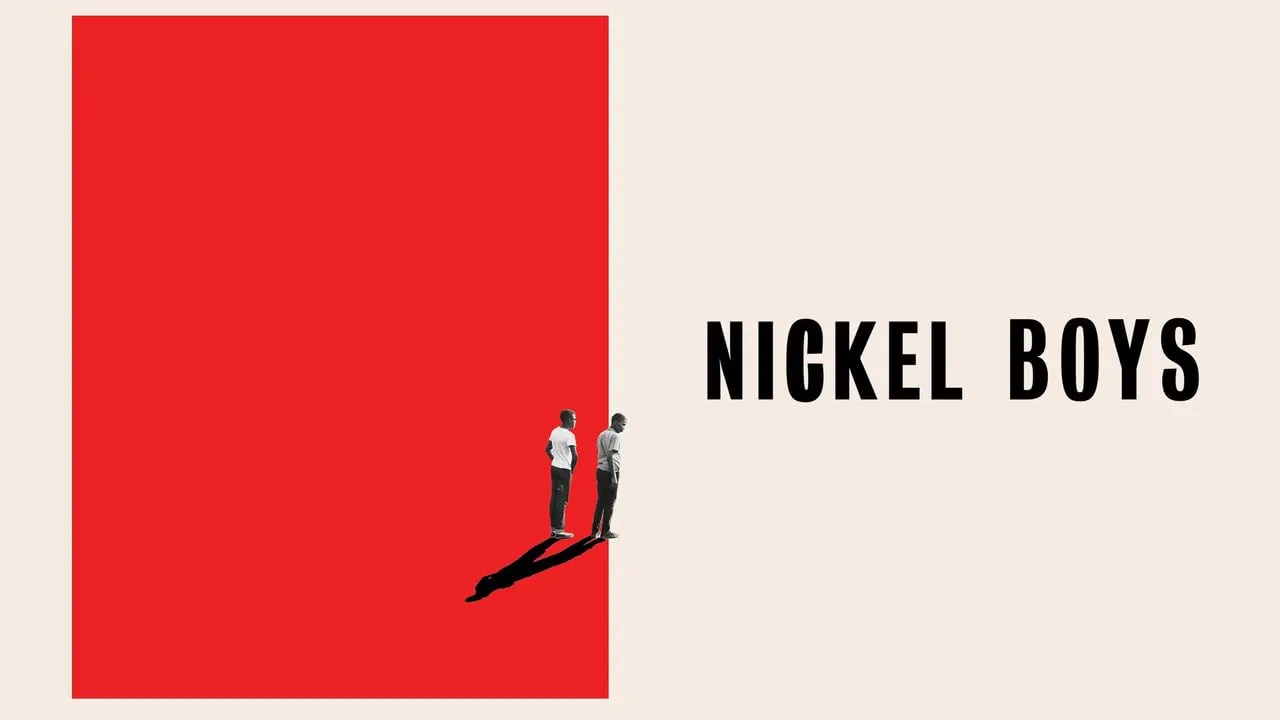RaMell Ross’ Nickel Boys powerfully adapts Colson Whitehead’s Pulitzer-winning novel of the same name. The story follows two young black boys, Elwood and Turner, in 1960s Florida. Sent to a brutal reform school called Nickel Academy, the two face unimaginable abuse. Yet through their unlikely friendship, they find the resilience to survive.
Ross directs with great care and vision. Like his Oscar-nominated documentary Hale County, he hones in on telling details. Scenes flit between perspectives to fully immerse the viewer in each character’s experience. Through Elwood in particular, we see the world was not meant for these boys to succeed. But we also see glimmers of hope – in protest speeches, grandmothers dances, the bond between Elwood and Turner.
Adapting such a harrowing tale was no easy task. But by prioritizing emotional truth over sensationalism, Ross brings real heart to difficult subject matter. He invites us to step into the characters’ shoes and better understand their reality. And in shining needed light on this buried history, Nickel Boys becomes a powerful catalyst for change. With vivid storytelling and socially conscious filmmaking, Ross has created a work that will no doubt leave its mark.
The Boys of Nickel
We’re introduced to Elwood, a young man growing up in Jim Crow, Florida. He finds inspiration in MLK’s words and dreams of making change. But fate deals him a cruel hand. After accepting a ride that ends in arrest, Elwood is sent to the harsh Nickel Boys reform school.
There we meet Turner, a once hopeful boy now turned cynical. He’s been at Nickel before and knows the staff view the students not as children but as enemies. Dozens of boys are said to be buried behind the school in unmarked graves. Turner has resigned himself to a similar fate.
Despite their differences, Elwood and Turner develop an unlikely friendship. At Nickel, bonds between the boys are their only source of strength against the cruelty that surrounds them. The headmaster rules through violence, doling out beatings in a shack dubbed “The White House.” Harsh field labor leaves the boys exhausted.
But it’s the subtle everyday injustices that truly break their spirits. Elwood and Turner swap stories of lives interrupted, of families and futures stolen away. Their faces indeed come to reflect the weariness of those who’ve learned too young that the system will give but also take
Amid this oppression, the friendship of Elwood and Turner serves as a light. Through exchanging childhood memories and debating ideals, they find solace and solidarity. Their evolving bond stands as a testament to the human spirit’s ability to overcome even the darkest of circumstances through compassion.
Unseeing to Understand
In Nickel Boys, RaMell Ross takes an unconventional approach – he tells the story entirely from the point of view of its two main characters. The camera is constantly shifting between Elwood and Turner’s perspectives, drawing the viewer deeply into their experiences.
This style is a logical extension of Ross’ documentary roots. Like in Hale County, he homes in on evocative details through lingering close-ups. But instead of observing from outside, we see the world unfolding through the boys’ eyes. It’s disorienting at first but soon feels strikingly intimate.
Certain moments simply could not have the same emotional impact told another way. When Nana embraces Turner in place of Elwood, the camera pressing into her dress is a viscerally sad image. And time spent following Elwood down cell block corridors alone builds an unshakeable sense of dread.
By never cutting away, Ross ensures we feel constantly present with the characters. It’s impossible not to feel abandoned alongside them in that brutal system. And in bearing witness up close, we gain an understanding for their resilience in the face of immense cruelty.
This style also references the invisibility these boys faced. By denying objectivity, Ross spotlights their subjectivity in a way that would otherwise be neglected. In a system designed to obscure and forget them, the camera refuses to look away.
It’s a bold, arresting approach befitting Ross’ bold visions. Like his documentary, Nickel Boys explores how focusing on small, lived details can profoundly reshape our perspectives.
Faces of Resilience
At the heart of Nickel Boys are the powerful performances of Ethan Herisse and Brandon Wilson. As Elwood and Turner, they bring such nuanced humanity to characters coping with unimaginable cruelty.
Though the boys face constant threats of violence, it’s in their eyes that the deepest scars appear. Herisse especially conveys a profound weariness, as if Elwood carries the weight of the world. Yet glimmers of hope remain—we see him cling to dignity and empathy even in his darkest moments.
Wilson imbues Turner with hardened cynicism, yet remains empathetic. We understand how this system warped his outlook yet left his spirit intact. Both actors shine a light on resilience, showing how the human capacity to endure stems not from strength alone but compassion.
Of course, these intimate portraits are elevated by timely themes. Nickel Boys shines needed attention on the real child abuse that inspired the film. By confronting racism, injustice, and moral corruption, it sparks vital conversations.
Yet the story transcends raw history by focusing on deeper truths. Through Elwood and Turner’s bond, we learn the redeeming power of friendship—how even in isolation, two souls can find solidarity. Their evolving dialogue on faith and morality suggests hope need not come from systems but each other.
In facing trauma, the boys’ faces reflect how the soul withstands by understanding both darkness and light within oneself. It’s a profound lesson we’d do well to heed, wherever our long journey from injustice may lead.
Threads of Resiliency
With Nickel Boys, RaMell Ross adds another powerful work to a burgeoning genre exploring Black identity in America. Parallels exist to acclaimed dramas like Moonlight in depicting the complexity of Black boyhood. And in translating a Pulitzer-winning tale of racism’s toll, echoes of The Underground Railroad emerge.
This recent crop of films stems from an urgency to confront history. As Nickel Boys depicts, the Jim Crow South subjected many to unthinkable injustice through reform schools and “separate but equal” facilities. Only by facing these scars head-on can we make progress.
Ross distinguishes his film through intimate, first-person storytelling. Rather than observe from outside, we share the boys’ reality through their own eyes. In weaving fiction with fact, he drives home how these individual threads connect to a wider tapestry of American experience.
Simultaneously grounded yet imaginative, Nickel Boys captures small moments that profoundly shift perspective. Its empathetic portraits highlight resiliency as a force that arises not despite oppression but through empathy found even in our darkest moments.
In showcasing untold narratives with empathy and care, works like Nickel Boys ensure those who came before will not be forgotten. Their legacies will inspire future generations in continuing the long march towards justice and community.
Drawing From Within
Certain scenes in Nickel Boys encapsulate Ross’ visionary techniques. When Nana embraces Turner, the camera sinking into her dress transforms private grief into something shared. We feel the boys’ pain parallel to the very fibers conveying it.
Flashes between Elwood and Turner emphasize their bond’s core – how shared suffering finds solace. Changing perspectives keeps viewers scanning frames, forging intimacy. The illusion of inhabiting these lives lingers in memory.
Archival footage and flashforwards hammer home implications. History folds in on itself to show how what was lived becomes preserved, its full truth waiting to be seen in a new light. Cycles of learning and unlearning society’s blindspots come full view.
Ross conveys a profound message—that stories survive in shared acts of witnessing. By bringing obscure narratives into focus and lending these lives texture, he resurrects vital parts of a whole. But the most indelible truths come from within, meaning found not despite injustice but through humanizing even its darkest corners.
Details unveil lives that, once truly seen, can never be forgotten or reduced. Ultimately the film amplifies resilience—how, from connection and understanding, even in a world not made for them, people cultivate purpose and dreams too transcendent to be constrained. Its parting image of outstretched hope lingers longest.
Moments of Resonance
Nickel Boys proves to be a powerful film deserving of wide acclaim. Through his bold adaptation, RaMell Ross has crafted a work that will no doubt resonate with audiences for years to come.
By prioritizing emotional truth over sensationalism and drawing viewers deeply inside his characters’ lives, Ross shines a necessary light on an untold chapter of American history. But more than that, he reminds us that even in our darkest periods, human resilience arises from compassion.
The intimacy of Ross’ storytelling and nuanced performances will likely leave few untouched. As scenes continue sparking fresh dialogues, so too may our society continue progressing towards justice.
In facing struggles both personal and shared, Elwood and Turner’s friendship illustrates how understanding and solidarity can sustain us. Their echoes and all who came before will encourage further dreaming of a world where all people can fully participate in its promises.
It is this message of light emerging from darkness, and voices merging as one, that will ensure Nickel Boys resonates long after its final, hopeful frames fade. For opening eyes to lives too long unseen, and hearts to their persisting strength, this film has cemented its place among America’s most meaningful works.
The Review
Nickel Boys
Through bold filmmaking and empathetic storytelling, RaMell Ross has crafted an essential work of art in Nickel Boys. By prioritizing emotional truth over sensationalism and drawing viewers deeply inside his characters' lives, he illuminates untold human resilience in the face of immense injustice. Nickel Boys proves a profoundly moving film that will surely spark needed conversations for years to come.
PROS
- Powerful and emotional performances from the leads
- Intimate and engaging storytelling through subjective camerawork
- She needed light on an overlooked historical injustice.
- Timely themes of racism, friendship, and human resilience
CONS
- Dark subject matter may be difficult to watch at times.
- Story could feel slow or repetitive for some viewers
- Flashes between timelines may confuse parts of the audience.



















































Discussion about this post